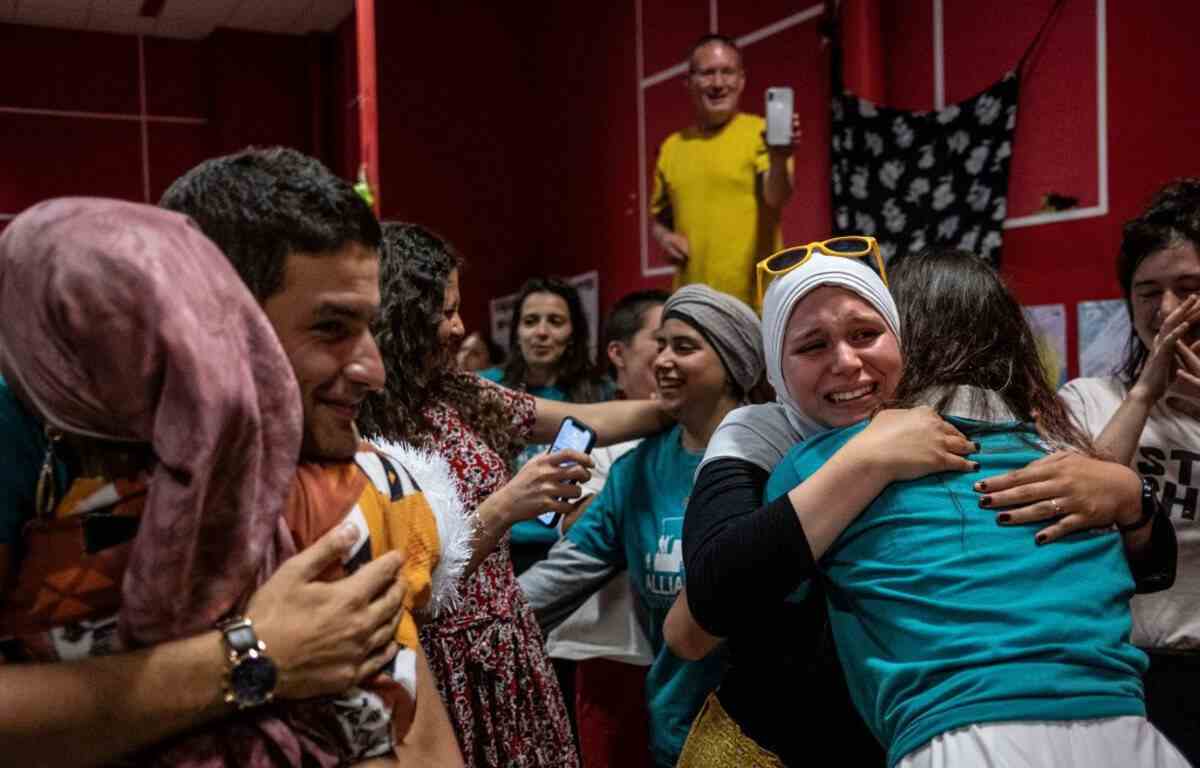At the town hall of Grenoble,
“You are embarrassing Muslims, you are embarrassing Grenoble and our history”. The protests of Emilie Chalas, elected LREM, will not have wavered Eric Piolle, the ecologist mayor of the city. Monday evening, the municipal councilors of Grenoble validated the revision of the regulations for public swimming pools which will now allow women to come and bathe in a burkini but also topless or with a T-shirt protecting them from the sun.
At the announcement of the results, the activists of the association Alliance Citoyenne exult. “We won”, they repeat at will, gathered in a packed room, located a few minutes from the town hall, while the elected socialists and right-wingers leave the municipal council in a sign of disagreement.
At the end of a debate of almost four hours, during which the exchanges were tense, the deliberation was adopted with a short head. Twenty-nine votes in favour, twenty-seven against and two abstentions. This means that the proposal has deeply divided, including in the ranks of the majority.
“The burkini is not a swimsuit like the others”
“We are neither slingers nor dissidents. We are neither Islamophobes nor secularists but the burkini, which is not a religious sign, remains the result of a patriarchal injunction”, underlines the ecologist Amel Zenati. The chosen one does not hide it, she remains worried about such a decision. “If the burkini supposedly symbolizes modesty, will there be a scale of modesty established according to the surface of the skin covered? What about women who don’t wear the burkini, will they be judged as immodest and not respectable? she wonders.
“This garment is not a swimsuit like the others. To claim the contrary is of great intellectual dishonesty”, asserts the socialist Cécile Cenatiempo, evoking “a step back”. And to add: “Some women fight on a daily basis precisely not to wear the veil, to be able to play sports, go to school, move around alone”.
The example of Rennes
“What has been happening in Rennes for four years [où la même mesure a été adoptée] shows that there has never been a disturbance of public order”, slice Eric Piolle for whom it is above all a “question of freedom” and “equal access to public service” . Not enough to calm the very upset opponents.
“Access to municipal swimming pools has always been authorized for women, it is the veil that has kept them away”, tackles Nathalie Béranger (LR). “Women, especially young people, have no problem bathing in swimsuits”, emphatically abounds El Hasni Ben Redjeb, accusing the mayor of favoring “a dogmatic claim”. “The veil was imposed by an ideology which consists in saying that women are objects of temptation and therefore that their bodies must be covered”, he recalls, insisting on the fact that the “population of Muslim faith does not did not ask to wear the burkini in the swimming pools”.
The Region abolishes its subsidies
“The authorization to wear the burkini is neither social progress, nor an instrument of equality and emancipation, but an instrument of control of the body of women”, deplores Amel Zenati once again, followed by twelve others ” dissidents” of the municipal majority. As for Laurent Wauquiez, president of the Auvergne-Rhône-Alpes region, he carried out his threat. The elected official immediately announced that he was withdrawing his subsidies to the city of Grenoble, namely 1.5 million euros according to the municipality.
The prefect of Isère had, for his part, indicated that he would seize the administrative court if the deliberation were to be adopted. What should be a matter of hours now…

